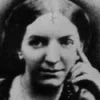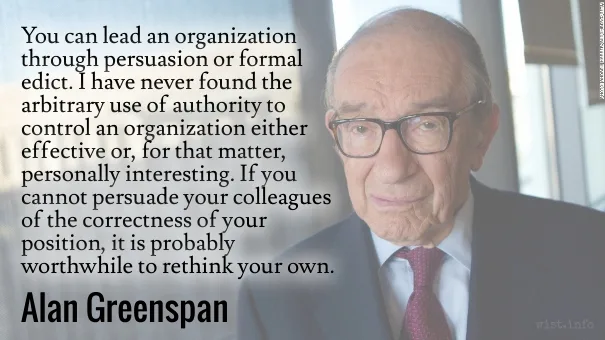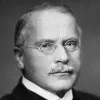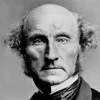When the Foxe preacheth, beware your geese.
George Herbert (1593-1633) Welsh priest, orator, poet.
Jacula Prudentum, or Outlandish Proverbs, Sentences, &c. (compiler), # 337 (1640 ed.)
(Source)
Quotations about:
persuasion
Note not all quotations have been tagged, so Search may find additional quotes on this topic.
Other people’s truth may comfort us, but only your own persuades us.
Mignon McLaughlin (1913-1983) American journalist and author
The Second Neurotic’s Notebook, ch. 4 (1966)
(Source)
By a pompous parade of words, some learned men have so managed it, that an unjust cause has often gained the victory, and reason submitted to sophistry and chicane.
[Gli uomini letterati, per pompa di parlare, fanno ben spesso che il torto vince, e che la ragione perde.]
Giovanni della Casa (1503-1556) Florentine poet, author, diplomat, bishop
Galateo: Or, A Treatise on Politeness and Delicacy of Manners [Il Galateo overo de’ costumi], ch. 29 (1558) [tr. Graves (1774)]
(Source)
(Source (Italian)). Alternate translations:But, we see that Learned men have suche art and cunning to persuade, and such filed wordes to serve their turne: that wrong doth carry the cause away, and Reason cannot prevaile.
[tr. Peterson (1576)]Men of letters, with their parade of high-flown language, very often make the wrong to prevail and the right to succumb.
[ed. Harbottle (1897)]We find that learned men, through their grandiose talk, very often manage to have the wrong side win and reason lose.
[tr. Eisenbichler/Bartlett (1986)]
A belated discovery, one that causes considerable anguish, is that no one can persuade another to change. Each of us guards a gate of change that can only be unlocked from the inside. We cannot open the gate of another, either by argument or emotional appeal.
Marilyn Ferguson (1938-2008) American author, editor, public speaker
The Aquarian Conspiracy, ch. 4 (1980)
(Source)
Even when you are right, it is good to make concessions: people will recognize you were right but admire your courtesy. More is lost through holding on than can be won by defeating others. One defends not truth but rudeness.
[Aun en caso de evidencia, es ingenuidad el ceder, que no se ignora la razón que tuvo y se conoce la galantería que tiene. Más se pierde con el arrimamiento que se puede ganar con el vencimiento; no es defender la verdad, sino la grosería.]
Baltasar Gracián y Morales (1601-1658) Spanish Jesuit priest, writer, philosopher
The Art of Worldly Wisdom [Oráculo Manual y Arte de Prudencia], § 183 (1647) [tr. Maurer (1992)]
(Source)
(Source (Spanish)). Alternate translations:It is civil to yield, even in those things wherein we have greatest reason and certainty: for then all know, who had reason on their side: and besides the reason, Gallantry is also discovered in the procedure. There is more esteem lost, by a wilfull resistence, then there is got by carrying it by open force. For that is not so much a defending of truth, as a demonstration of Clownishness.
[Flesher ed. (1685)]Even in cases of obvious certainty it is fine to yield: our reasons for holding the view cannot escape notice, our courtesy in yielding must be the more recognised. Our obstinacy loses more than our victory yields: that is not to champion truth but rather rudeness.
[tr. Jacobs (1892)]Even with the proof on your side, it is well to make concession, for your reasons are known and your gentlemanliness is recognized; more is lost in contention than can be gained in consummation, for such does not defend the truth, but only exhibits bad manners.
[tr. Fischer (1937)]
We should strive only to think and speak rightly, without seeking to win others over to our own taste and opinions; that is too great an undertaking.
[Il faut chercher seulement à penser et à parler juste, sans vouloir amener les autres à notre goût et à nos sentiments; c’est une trop grande entreprise.]
Jean de La Bruyère (1645-1696) French essayist, moralist
The Characters [Les Caractères], ch. 1 “Of Works of the Mind [Des Ouvrages de l’Esprit],” § 2 (1.2) (1688) [tr. Stewart (1970), “Of Books”]
(Source)
(Source (French)). Alternate translations:We must only endeavour to think and speak justly our selves, without aiming to bring others over to our taste and sentiment; We shall find that too great an enterprize.
[Bullord ed. (1696) "Of Polite Learning"]We must only endeavour to think and speak justly our selves, without aiming to bring others over to our Taste and Sentiments; that would be too great an Enterprize.
[Curll ed. (1713), "Of Works of Wit and Eloquence"]We must only endeavour to think and speak justly ourselves, without aiming to bring others over to our Taste and Sentiments; that would be too great an Enterprize.
[Browne ed. (1752), "Of Works of Genius"]We should only endeavor to think and speak correctly ourselves, without wishing to bring others over to our taste and opinions; this would be too great an undertaking.
[tr. Van Laun (1885)]
Herr Docktor Getwin Mittelmind (PhD, MD, BFA, University of Salzburg) was a spark who specialized in mad psychology. A specialized field to be sure. He was not locked away in Castle Heterodyne because he built giant anteaters. No, he was locked away in Castle Heterodyne because he could take a perfectly ordinary group of people and within six days they would build a giant anteater — because it was the logical thing to do.
Phil Foglio (b. 1956) American writer, cartoonist
Agatha H. and the Siege of Mechanicsburg (2020) [with Kaja Foglio]
(Source)
A man may be in as just possession of Truth as of a City, and yet be forced to surrender.
Thomas Browne (1605-1682) English physician and author
Religio Medici, Part 1, sec. 6 (1643)
(Source)
A good rule for discussion is to use hard facts and a soft voice.
Dorothy Sarnoff (1914-2008) American opera singer, actress, image consultant
Speech Can Change Your Life (1970)
(Source)
Errors and mistakes, however gross, in matters of opinion, if they are sincere, are to be pitied, but not punished nor laughed at. The blindness of the understanding is as much to be pitied as the blindness of the eye, and there is neither jest nor guilt in a man’s losing his way in either case. Charity bids us set him right if we can, by arguments and persuasions; but charity, at the same time, forbids, either to punish or ridicule his misfortune.
Lord Chesterfield (1694-1773) English statesman, wit [Philip Dormer Stanhope]
Letter to his son, #126 (21 Sep 1747)
(Source)
On religious tolerance.
When the conduct of men is designed to be influenced, persuasion, kind, unassuming persuasion, should ever be adopted. It is an old and true maxim “that aa drop of honey catches more flies than a gallon of gall.” If you would win a man to your cause, first convince him that you are his sincere friend. Therein is a drop of honey that catches his heart, which, say what you will, is the great high-road to his reason, and which, when once gained, you will find but little trouble in convincing his judgement of the justice of your cause, if indeed that cause really be a just one.
Abraham Lincoln (1809-1865) American lawyer, politician, US President (1861-65)
Speech, Washingtonian Temperance Society, Springfield, Illinois (22 Feb 1842)
(Source)
Several excuses are always less convincing than one.
Aldous Huxley (1894-1963) English novelist, essayist and critic
Point CounterPoint, ch. 1 (1928)
(Source)
How easy it is to make people believe a lie, and how hard it is to undo that work again!
Mark Twain (1835-1910) American writer [pseud. of Samuel Clemens]
Dictation (2 Dec 1906), The Autobiography of Mark Twain, Vol. 2 (2013)
(Source)
A sentiment that may be behind the spurious Twain quotation, "It's easier to fool people than to convince them that they have been fooled."
There is nothing that you may not get people to believe in if you will only tell it them loud enough and often enough, till the welkin rings with it.
Ouida (1839-1908) English novelist [pseud. of Maria Louise Ramé]
Wisdom, Wit, and Pathos, “Friendship” (1884)
(Source)
"Welkin" is an obsolete word for "heavens."
Naturally I am not pointing a finger at me,
But I must admit that I find Mr. Ickes or any other speaker far more convincing when I agree with him than when I disagree.
Ogden Nash (1902-1971) American poet
“Seeing Eye to Eye is Believing,” Good Intentions (1942)
(Source)
Man is a talking animal and he will always let himself be swayed by the power of the word.
Simone de Beauvoir (1908-1986) French author, existentialist philosopher, feminist theorist
Les Belles Images (1966)
(Source)
Yet at this very point it becomes quite clear that only an act of liberation, not instruction, can overcome stupidity. Here we must come to terms with the fact that in most cases a genuine internal liberation becomes possible only when external liberation has preceded it. Until then we must abandon all attempts to convince the stupid person. This state of affairs explains why in such circumstances our attempts to know what “the people” really think are in vain and why, under these circumstances, this question is so irrelevant for the person who is thinking and acting responsibly.
Dietrich Bonhoeffer (1906-1945) German Lutheran pastor, theologian, martyr
“On Stupidity” (1942)
(Source)
Abuse of words has been the great instrument of sophistry and chicanery, of party, faction, and division of society.
John Adams (1735-1826) American lawyer, Founding Father, statesman, US President (1797-1801)
Letter to J. H. Tiffany (31 Mar 1819)
(Source)
You can lead an organization through persuasion or formal edict. I have never found the arbitrary use of authority to control an organization either effective or, for that matter, personally interesting. If you cannot persuade your colleagues of the correctness of your position, it is probably worthwhile to rethink your own.
Do you know what makes a leader? It’s the man or woman who can persuade people to do what they ought to do — and which they sometimes don’t do — without being persuaded. They must also have the ability to persuade people to do what they do not want to do and like it.
Harry S Truman (1884-1972) US President (1945-1953)
Speech, Annapolis (24 May 1952)
(Source)
Truman used this phrase multiple times in his speech and writing:
- Common paraphrase: "You know what makes leadership? It is the ability to get men to do what they don't want to do and like it."
- "I could see that history had some extremely valuable lessons to teach. I learned from it that a leader is a man who has the ability to get other people to do what they don't want to do, and like it." -- Memoirs, Book 1 (1955)]
- "My definition of a leader in a free country is a man who can persuade people to do what they don't want to do, or do what they're too lazy to do, and like it." -- Where the Buck Stops (1990) [ed. M. Truman]
The essence of leadership is to get others to do something because they think you want it done and because they know it is worth while doing — that is what we are talking about.
The shepherd always tries to persuade the sheep that their interests and his own are the same.
Everyone is prejudiced in favor his own powers of discernment, and will always find an argument most convincing if it leads to the conclusion he has reached for himself; everyone must then be given something he can grasp and recognize as his own idea.
Some people are to be reasoned, some flattered, some intimidated, and some teased into a thing; but, in general, all are to be brought into it at last, if skillfully applied to, properly managed, and indefatigably attacked in their several weak places.
Lord Chesterfield (1694-1773) English statesman, wit [Philip Dormer Stanhope]
Letter to his son, #183 (22 May 1749)
(Source)
There is no better way to convince others than first to convince oneself.
Marcus Tullius Cicero (106-43 BC) Roman orator, statesman, philosopher
(Attributed)
(Source)
In Martin Luther, Table Talk (1566) [tr. Smith & Gallinger (1915)].
Would you persuade, speak of Interest, not of Reason.
Benjamin Franklin (1706-1790) American statesman, scientist, philosopher, aphorist
Poor Richard (1734 ed.)
(Source)
To work a Man to thy Bent: 1. Know his Inclinations. 2. Observe his Ends. 3. Search out his Weakness. And so thou mayst either draw or drive him.
Thomas Fuller (1654-1734) English physician, preacher, aphorist, writer
Introductio ad Prudentiam, Vol. 1, # 1067 (1725)
(Source)
The real persuaders are our appetites, our fears, and above all our vanity. The skillful propagandist stirs and coaches these internal persuaders.
Eric Hoffer (1902-1983) American writer, philosopher, longshoreman
The Passionate State of Mind, Aphorism 218 (1955)
(Source)
Propaganda thus serves more to justify ourselves than to convince others; and the more reason we have to feel guilty, the more fervent our propaganda.
Eric Hoffer (1902-1983) American writer, philosopher, longshoreman
True Believer: Thoughts on the Nature of Mass Movements, Part 3, ch. 14, § 84 (1951)
(Source)
Persuasion is better than force.
The individual is not accountable to society for his actions in so far as these concern the interests of no person but himself. Advice, instruction, persuasion, and avoidance by other people, if thought necessary by them for their own good, are the only measures by which society can justifiably express its dislike or disapprobation of his conduct.
John Stuart Mill (1806-1873) English philosopher and economist
On Liberty, ch. 5 “Applications” (1859)
(Source)
The fanatic cannot be weaned away from his cause by an appeal to his reason or moral sense. He fears compromise and cannot be persuaded to qualify the certitude and righteousness of his holy cause. But he finds no difficulty in swinging suddenly and wildly from one holy cause to another. He cannot be convinced but only converted, His passionate attachment is more vital than the quality of the cause to which he is attached.
Eric Hoffer (1902-1983) American writer, philosopher, longshoreman
True Believer: Thoughts on the Nature of Mass Movements, Part 3, ch. 13, § 61 (1951)
(Source)
Intellectual honesty and obvious sincerity carry more conviction than was ever accomplished by mere utterance. The advocate can make no greater mistake than to ignore or attempt to conceal the weak points in his case. The most effective strategy is at an early stage of the argument to invite attention to your weakest point before the court has discovered it, then to meet it with the best answers at your disposal, to deal with all the remaining points with equal candor, and to end with as powerful a presentation of your strongest point as you are capable of making.
George W. Pepper (1867-1961) American lawyer, law professor, politician
Letter to Eugene Gerhart (1951-12-10)
(Source)
Quoted in Gerhart, America's Advocate: Robert H. Jackson, ch. 24 (1958).
Why is propaganda so much more successful when it stirs up hatred than when it tries to stir up friendly feeling?
Bertrand Russell (1872-1970) English mathematician and philosopher
Conquest of Happiness, Part 1, ch. 6 “Envy” (1930)
(Source)
[Arguments] seem unable to influence the masses in the direction of what is noble and good. For the masses naturally obey fear, not shame, and abstain from shameful acts because of the punishments associated with them, not because they are disgraceful.
[τοὺς δὲ πολλοὺς ἀδυνατεῖν πρὸς καλοκαγαθίαν προτρέψασθαι: οὐ γὰρ πεφύκασιν αἰδοῖ πειθαρχεῖν ἀλλὰ φόβῳ, οὐδ᾽ ἀπέχεσθαι τῶν φαύλων διὰ τὸ αἰσχρὸν ἀλλὰ διὰ τὰς τιμωρίας]
Aristotle (384-322 BC) Greek philosopher
Nicomachean Ethics [Ἠθικὰ Νικομάχεια], Book 10, ch. 9 (10.9.3-4) / 1179b.10ff (c. 325 BC) [tr. Crisp (2000)]
(Source)
(Source (Greek)). Alternate translations:[Talking and writing] plainly are powerless to guide the mass of men to Virtue and goodness; because it is not their nature to be amenable to a sense of shame but only to fear; nor to abstain from what is low and mean because it is disgraceful to do it but because of the punishment attached to it
[tr. Chase (1847), ch. 8]But, for most men, mere precept is powerless to dispose them to noble conduct. For their nature is such, that they are not ruled by a proper sense of shame, but only by fear, and do not abstain from vice because of the disgrace which attaches to it, but because of the punishment which its practice involves.
[tr. Williams (1869)][Theories] are impotent to inspire the mass of men to chivalrous action; for it is not the nature of such men to obey honour but terror, nor to abstain from evil for fear of disgrace but for fear of punishment.
[tr. Welldon (1892)]Yet [theories] are powerless to turn the mass of men to goodness. For the generality of men are naturally apt to be swayed by fear rather than by reverence, and to refrain from evil rather because of the punishment that it brings than because of its own foulness.
[tr. Peters (1893)][Arguments] are not able to encourage the many to nobility and goodness. For these do not by nature obey the sense of shame, but only fear, and do not abstain from bad acts because of their baseness but through fear of punishment.
[tr. Ross (1908)]Yet [theories] are powerless to stimulate the mass of mankind to moral nobility. For it is the nature of the many to be amenable to fear but not to a sense of honor, and to abstain from evil not because of its baseness but because of the penalties it entails.
[tr. Rackham (1934)][Arguments are] unable to encourage ordinary people toward noble-goodness. For ordinary people naturally obey not shame but fear and abstain from base things not because of their shamefulness but because of the sanctions involved.
[tr. Reeve (1948)][Arguments] cannot exhort ordinary men to do good and noble deeds, for it is the nature of these men to obey not a sense of shame but fear, and to abstain from what is bad not because this is disgraceful but because of the penalties which they would receive.
[tr. Apostle (1975)][Discourses] are incapable of impelling the masses toward human perfection. For it is the nature of the many to be ruled by fear rather than by shame, and to refrain from evil not because of the disgrace but because of the punishments.
[tr. Thomson/Tredennick (1976)]But [arguments] seem unable to turn the many toward being fine and good. For the many naturally obey fear, not shame; they avoid what is base because of the penalties, not because it is disgraceful.
[tr. Irwin/Fine (1995)]
It is never to be expected in a revolution that every man is to change his opinion at the same moment. There never yet was any truth or any principle so irresistibly obvious that all men believed it at once.
Thomas Paine (1737-1809) American political philosopher and writer
“Dissertation on the First Principles of Government” (Jul 1795)
Source essay
Perhaps the sentiments contained in the following pages, are not YET sufficiently fashionable to procure them general favour; a long habit of not thinking a thing WRONG, gives it a superficial appearance of being RIGHT, and raises at first a formidable outcry in defense of custom. But the tumult soon subsides. Time makes more converts than reason.
Thomas Paine (1737-1809) American political philosopher and writer
Common Sense (14 Feb 1776)
Source essay
The trouble with having an open mind, of course, is that people will insist on coming along and trying to put things in it.
Tell a man he is brave, and you help him to become so.















































